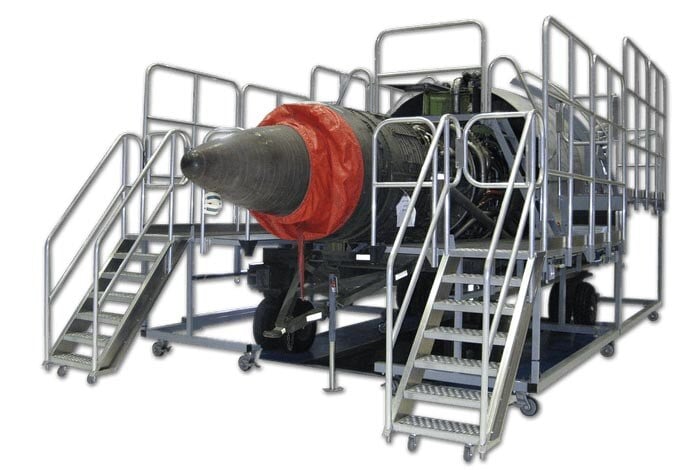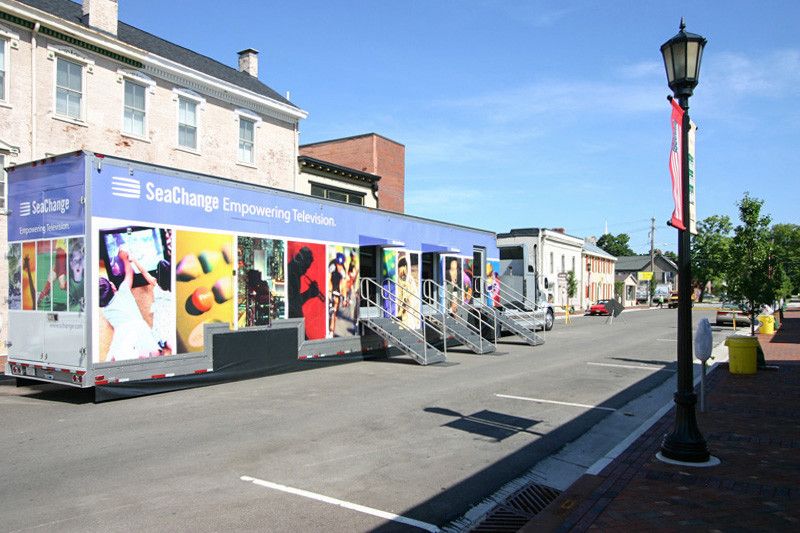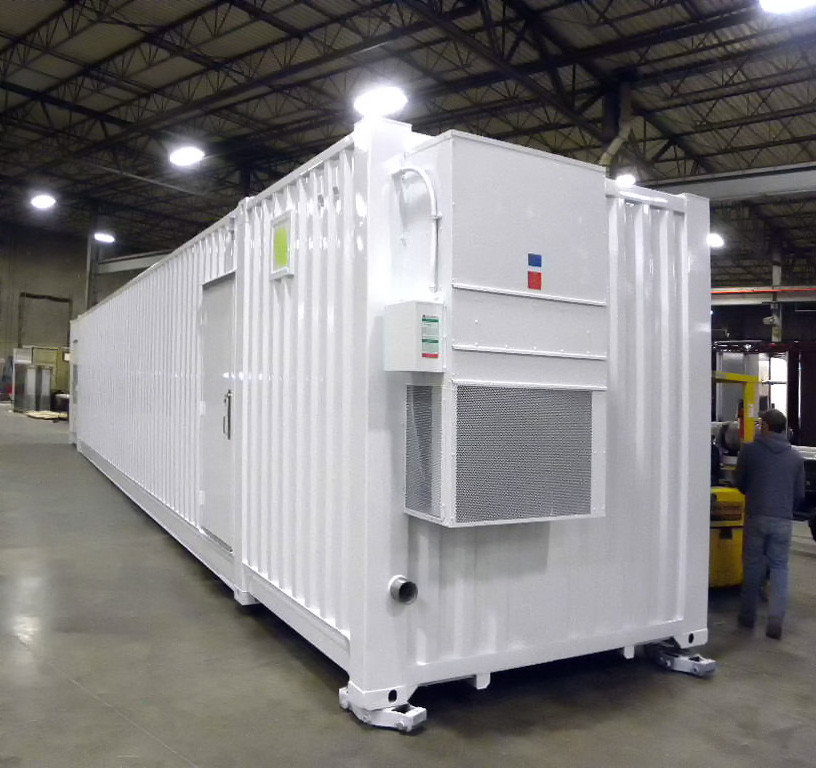Industrial Fabrication Key Steps
As a manufacturing craft, industrial fabrication plays a crucial role in the modern economy. It refers to transforming raw materials into finished...
6 min read
Craftsmen Industries Oct 2, 2024 9:18:40 AM

Industrial fabrication is the process of creating custom metal structures, parts, and components by cutting, shaping, and assembling raw materials. It is an essential service in various industries, enabling the construction of machinery, equipment, and large-scale infrastructure projects with high precision and durability. Whether you're in automotive, aerospace, construction, or manufacturing, industrial fabrication services ensure that you have the custom solutions necessary to meet your specific project needs.
By the end of this blog, you will gain a thorough understanding of what industrial fabrication entails, the processes involved, the benefits it offers, and the technologies driving its evolution.

What is industrial fabrication? At its core, it’s the process of transforming raw materials into essential components for critical industries. From cars to hospitals to power plants, the industrial fabrication process helps create precise, durable, and safe products for specialized applications.
In the automotive industry, custom metal fabrication enables the production of parts like engine brackets, battery mounts, and suspension components. These fabricated parts must meet tight tolerances and are often shaped using welding and CNC machining. This ensures consistency and performance across vehicle platforms.
The aerospace sector relies heavily on precision metal fabrication to create components such as turbine blades, wing panels, and landing gear parts. These components must meet strict regulations and are often made using lightweight alloys and laser cutting fabrication for smooth, exact finishes.
In the medical field, fabricated metal components like MRI machine frames, surgical instruments, and patient lifts are manufactured using sheet metal fabrication. Stainless steel is often used for its hygiene, durability, and ease of sterilization.
Large-scale infrastructure projects require steel fabrication and structural metal fabrication to build bridges, public transportation structures, and multistory frameworks. These environments demand reliable, load-bearing components created through heavy-duty metal fabrication.
In energy and utilities, industrial metal fabrication supports projects like wind turbines and oil pipelines. These projects often require custom fabrication solutions designed to withstand heat, pressure, and extreme weather.
Industrial fabrication is a multi-step process that ensures your custom parts and structures are produced to the highest standards. Here’s a step-by-step guide:
The fabrication process begins with design and drawings. Advanced CAD software (Computer-Aided Design) is used to create detailed blueprints. This not only ensures precision but also allows for adjustments before physical production starts, reducing errors and wastage.
The selection of materials is a critical stage. Depending on the project, factors such as durability, resistance to environmental conditions, and strength are considered. Metals like steel, aluminum, or specialty alloys are often selected to meet the exacting demands of different industries.
Punching involves creating holes in metal sheets for rivets, fasteners, or bolts. This ensures that the parts can be easily assembled during later stages. Precision punching is important for creating components that fit seamlessly together.
Once the design and materials are finalized, the fabrication process begins. This involves cutting, shaping, and forming materials into the desired components using techniques such as welding, laser cutting, and forming. The use of industrial fabricating systems ensures efficiency and precision.
After the individual components are fabricated, the next step is assembly. This stage involves piecing together the parts to create the final product according to the design blueprint. The assembly process is carefully executed to ensure that everything fits and functions as intended.
Finishing processes like painting or powder coating are applied to enhance the durability and aesthetics of the product. Finishing also adds protective layers that safeguard the material from corrosion, wear, and other environmental factors.
During quality checking, the fabricated components undergo rigorous testing to ensure they meet the highest standards. From structural integrity to dimensional accuracy, no detail is overlooked to ensure that the final product meets industry standards and client specifications.
Once the fabrication work is complete and quality checks are passed, the product is securely packed and shipped. At Craftsmen Industries, we ensure that each item is safely packaged and transported, ready for installation or further use.
Industrial fabrication involves various processes, each suited to specific needs and applications:
Cutting - involves separating pieces of metal using saws, lasers, or plasma cutters. This is a crucial step in shaping materials to meet precise design specifications.
Forging - In forging, metal is heated and shaped by applying pressure. This process creates stronger and more durable parts, ideal for high-stress applications like automotive and heavy machinery components.
Casting - involves pouring molten metal into molds to create components with specific shapes. This method is commonly used for creating complex parts in bulk, like engine blocks and pipes.
Milling - is a machining process where rotating tools remove material from a workpiece. This process is highly precise and used to create intricate parts that require exact measurements.
Drawing - In drawing, metal is stretched through a die to create long sections of material such as rods and wires. This is commonly used in the production of wiring and tubing.
Punching - creates holes in metal sheets using a punch press. This is crucial for components that need to be fastened together.
Drilling - is used to create precise holes in materials, often required in later assembly processes.
Turning - involves rotating a workpiece while a cutting tool shapes it, typically used to create cylindrical parts.
Extrusion - pushes or pulls metal through a die to create long, continuous shapes like pipes and tubes. This process is ideal for creating uniform components in large quantities.
Industrial fabrication can be divided into different categories based on the scale and type of work involved. These categories help define the services provided:
At Craftsmen Industries, technology plays a significant role in advancing the precision and efficiency of our industrial fabrication services. Here are the key technologies we use:
Our team utilizes CAD software for designing and creating detailed blueprints. This technology allows us to model complex designs and simulate how components will fit together, ensuring precision before production begins.
Automation has become an integral part of the fabrication industry. With the use of robotic welding systems and automated material handling, we are able to speed up production times while maintaining high-quality standards.
We rely on advanced machinery such as CNC machines, laser cutters, and hydraulic presses to perform precise cutting, shaping, and forming. These machines help us create components that meet exact specifications, even for the most complex projects.
Modern industrial fabrication services are defined by constant innovation. New tools and systems allow for better materials, faster delivery, and less waste across various fabrication processes.
The rise of advanced fabrication technology—including 3D metal printing, robotics, and AI—has introduced new possibilities. These innovations reduce lead times and allow for highly complex parts that traditional methods cannot replicate. A metal fabricator can now design intricate parts with minimal waste using simulation software and real-time data.
Smart manufacturing combines sensors, automation, and analytics to control every step of the production line. This allows fabricators to monitor progress, reduce defects, and enhance safety across commercial metal fabricationoperations.
Environmental responsibility is now a key factor in fabrication. By recycling unused materials, optimizing layouts, and powering equipment with renewable sources, metal fabrication is becoming greener. This shift in mindset benefits industries seeking long-term, sustainable solutions with scalable results in metal fabrication process control.
Understanding the benefits of industrial fabrication is essential for businesses looking to streamline their manufacturing processes. Here are the top benefits:
Industrial fabrication is a critical service across various industries, providing customized, durable, and precise solutions for all types of projects. At Craftsmen Industries, we combine advanced technology with expert craftsmanship to deliver the highest-quality industrial fabrication services. Whether you're looking for custom fabrication, heavy-duty structural fabrication, or sheet metal fabrication, our team is ready to turn your vision into reality.
Contact us today to discuss how our fabrication services can meet your project's needs!
Q: What industries benefit most from industrial?
A: Industries such as automotive, aerospace, construction, and heavy machinery benefit the most, as fabrication provides durable, custom solutions for complex needs.
Q: How long does the industrial fabrication process take?
A: Timelines vary depending on the complexity of the project, but the use of advanced technology like automation and CAD software allows for faster turnaround times.
Q: Can you handle large-scale projects?
A: Yes, Craftsmen Industries specializes in both small-scale and large-scale industrial fabrication, ensuring that we can meet the demands of any project.
Q: How does industrial fabrication differ from traditional manufacturing?
A: Fabrication focuses on custom-built designs, while traditional manufacturing favors standard, high-volume products. Fabricators work with a wider range of materials and specialized processes to meet unique requirements. If you need a one-off solution, a team of skilled metal fabricators will deliver to your exact specifications with greater design flexibility.
Q: What affects the cost of fabrication?
A: Materials, labor, and complexity. For example, working with sheet metal or layered alloys can increase production steps and cost. Design intricacy, custom tooling, finishing needs, and tight tolerances also play a role in determining final project expenses.
Q: How does automation help?
A: Automation supports high-speed production, especially for fabrication process stages like forming, assembly, or inspection. It also reduces manual errors and increases consistency across parts, making it ideal for repeatable, high-precision tasks in both small and large production runs.
Q: What impacts turnaround time?
A: Material lead times, team capacity, and the need for any special processes or customization steps. Projects with complex engineering requirements or multi-stage fabrication may take longer, though automation and digital design tools can help speed up delivery.

As a manufacturing craft, industrial fabrication plays a crucial role in the modern economy. It refers to transforming raw materials into finished...
Industrial fabrication is a process in which specialized machinery alters raw materials to specific shapes. Without the fabrication industry, there...

Industrial fabrication is any process that involves turning raw materials into finished products using machinery and skilled labor. The industrial...